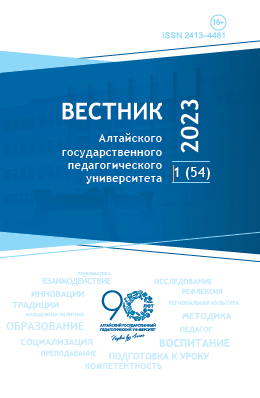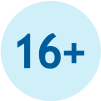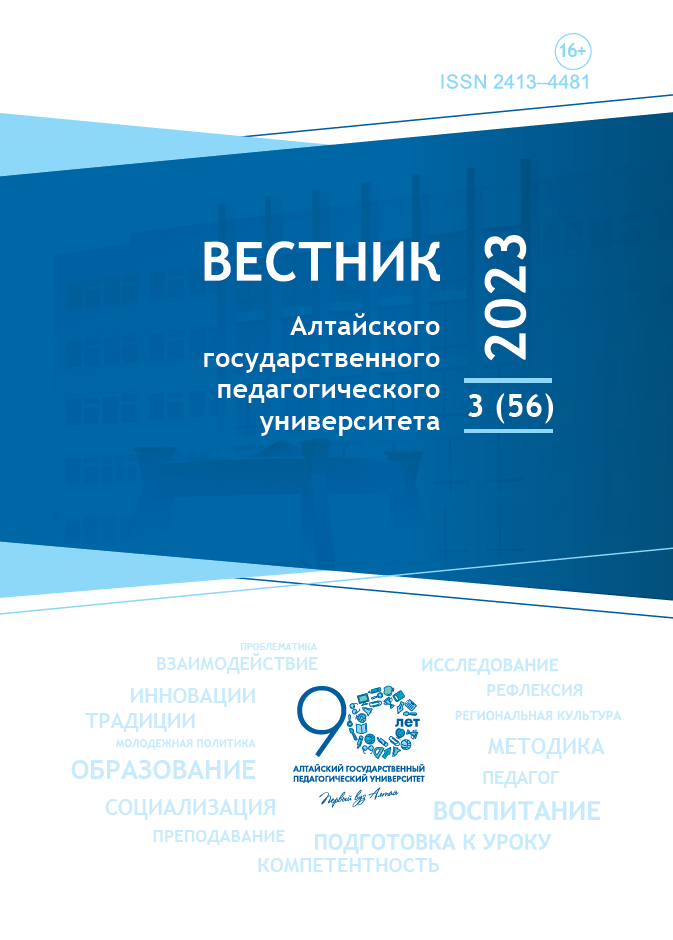PROSPECTS OF APPLYING A MULTIMODAL APPROACH TO THE FORMATION OF READING AND WRITING SKILLS IN THE FRAMEWORK OF TEACHER TRAINING
DOI:
https://doi.org/10.37386/2413-4481-2023-1-28-33Keywords:
multimodality, research skills, screen-based texts, augmented reality, augmented educationAbstract
The research reveals the specifics of a multimodal approach to the formation of professional skills of teachers as a basis for teaching reading and writing skills. Theoretically, the basic limitations of multimodality are clarified. The method of comparative analysis helps to correlate the concepts offered by modern scholars concerning the formation of reading and writing skills within the framework of traditional and multimodal approaches to learning. As a result, the article shows the prospects of using multimodality in the training of teaching staff as a version of the construction of augmented forms of pedagogical education.References
Grogan K. E. Writing Science: What Makes Scientific Writing Hard and How to Make It Easier // The Bulletin of the Ecological Society of America. 2021. V. 102, № 1. Р. e01800. DOI https://doi.org/10.1002/bes2.1800.
Serafini F. Reading the Visual: An Introduction to Teaching Multimodal Literacy. New York, NY: Teachers College Press, 2014. 189 p
Wu H.-K., Lee S. W.-Y., Chang H.-Y., Liang J.-C. Current Status, Opportunities and Challenges of Augmented Reality in Education // Computers & Education. 2013. V. 62. P. 41-49. DOI https://doi.org/10.1016/j.compedu.2012.10.024.
Petrová Z., Nemec R. Changing Reading Paths in a Digital Age: What are the Consequences for Meaning-Making? // Journal of Pedagogy. 2019. V. 10, № 2. P. 65-85. DOI https://doi.org/10.2478/jped-2019-0007.
Applebee D., Bennett-Day B., Ferrari J., Pritchard P., Boettger-Tong H. Multimodal Training Improves Spatial Reasoning Skills in Female College Students // Journal of Science Education and Technology. 2021. V. 30, № 1. Р. 539-549. DOI https://doi.org/10.1007/s10956-020-09898-6.
Salimpour S., Fitzgerald M. T., Tytler R., Eriksson U. Educational Design Framework for a Web-Based Interface to Visualise Authentic Cosmological “Big Data” in High School // Journal of Science Education and Technology. 2021. V. 30, № 5. P. 732-750. DOI https://doi.org/10.1007/s10956-021-09915-2.
Mills K. A., Stone B. G., Unsworth L., Friend L. Multimodal Language of Attitude in Digital Composition // Written Communication. 2020. P. 074108831989797. DOI https://doi.org/10.1177/0741088319897978.
Jacobs D. Graphic Encounters: Comics and the Sponsorship of Multimodal Literacy. London: Bloomsbury, 2013. 240 p.
Belcher, D.D. On Becoming Facilitators of Multimodal Composing and Digital Design // Journal of Second Language Writing. 2017. V. 38. P. 80-85. DOI https://doi.org/10.1016/j.jslw.2017.10.004.
Blake R. Technology and the Four Skills // Language Learning & Technology. 2016. V. 20. P. 129-142.
Kulikov S. B., Shirokova A. V. Artificial Intelligence, Culture and Education // AI & Society: Knowledge, Culture and Communication. 2021. V. 36, № 1. Р. 305-318. DOI https://doi.org/10.1007/s00146-020-01026-7.
Shin D., Cimasko T., Yi Y. Development of Metalanguage for Multimodal Composing: A Case Study of an L2 Writer’s Design of Multimedia Texts // Journal of Second Language Writing. 2020. V. 47. P. 100714. DOI https://doi.org/10.1016/j.jslw.2020.100714.
Kim Y., Belcher D. Multimodal Composing and Traditional Essays: Linguistic Performance and Learner Perceptions // RELC Journal. 2020. V. 51, № 1. P. 86-100. DOI https://doi.org/10.1177/0033688220906943.
Downloads
Published
Issue
Section
License
Для публикации статьи в журнале «Вестник Алтайского государственного педагогического университета» автору необходимо заключить лицензионный договор с федеральным государственным бюджетным образовательным учреждением высшего образования «Алтайский государственный педагогический университет» (ФГБОУ ВО «АлтГПУ»).



